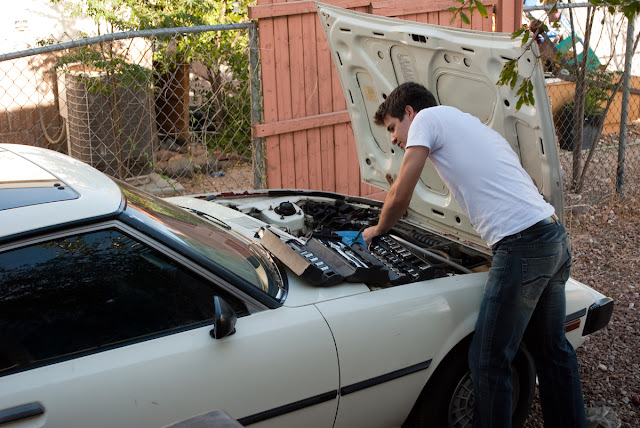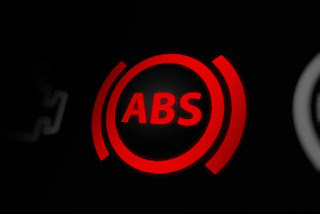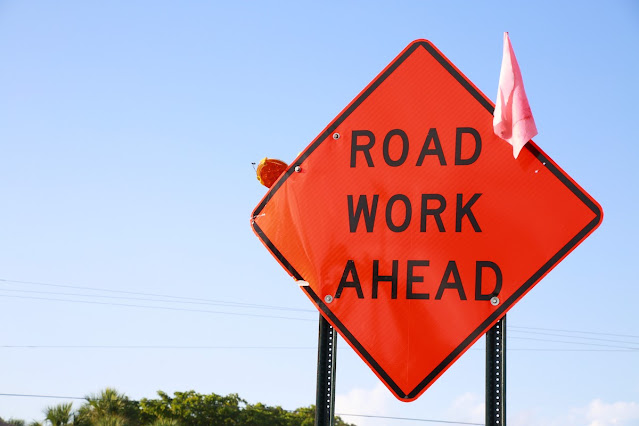Thursday, September 17, 2020
Different Types of Car Brakes Explained
Tuesday, September 15, 2020
Different Types of Car Tires
Let's face it, shopping for a new set of tires isn't even close to being as fun as shopping for a new pair of kicks. Car tires are expensive and take a lot of punishment mile after mile so why should you worry about buying a new set? Well, like we said, they're your vehicle's one contact point with the road and they can make all the difference.
There are many options available when it comes to car tires and we have an excellent and affordable selection available here at Toyota of Orlando. Our expert auto service and parts staff has prepared a guide for you so you can shop for your next set of tires and get exactly what you and your ride need.
Different Types of Car Tires You Can Shop For
Summer Tires
This type of car tire is designed for more temperate climates where the temperature doesn't dip below 45 degrees very often (aka Orlando). They perform well in wet and dry conditions and use orbital grooves for excellent handling.
All Season Tires
If you're need of a tire that can perform in just about every type of condition (other than extreme). All season tires are able to withstand both wet and dry conditions with confidence and can even tackle light snow conditions. These tires can come in 2 different types called Touring and Passenger. Passenger tires typically provide a smoother ride quality and have great longevity while touring car tries emit less noise and perform well.
Winter/Snow
For those that don't live in the Orlando area, particularly one with cold and snow, these car tires are perfect for you and your ride. Winter/snow tires are made using a specific type of rubber that stays soft and pliable when the temperature dips. The tread on these tires is designed with deep grooves and fissures to help snow and slush move past the tire easily without sacrificing grip strength and handling.
Performance
Racing might be in your blood, but you're going to need the right tires to get you to the finish line. Performance tires are arguably the best shoes to outfit your vehicle with if you have a real need for speed. These tires rep excellent handling and cornering capabilities for all vehicle's they're attached to. You can identify these car tires by a wider shape, shallow tread, and lower profile. They come in other types like high performance, performance, ultra-high performance, and competition.
Truck
Orlando Toyota trucks are meant to put in work and you need to make sure you have the right car tires to complete every job and commute. Truck tires come in several varieties like highway and all-terrain. Highway tires provide your truck with a smooth ride as they're engineered to withstand higher speeds and aggressive driving. All-terrain can tackle a variety of different driving settings like sand, heavy mud, and snow.
Get the Car Tires You Need from Toyota of Orlando
Driving in a construction zone: 8 tips
No matter where you drive in Orlando, you're likely to encounter construction zones from time to time (especially if you drive on I-4, which seems to be perpetually under construction). These zones require a shift in your drive habits for your own safety and also to ensure you're following the law. Toyota of Orlando is here with tips to help you do it - check out this helpful info on how to drive in a construction zone before you hit the road again.
8 tips for taking on construction zones
#1: Reduce your speed.
When you're driving in a construction zone, you should drop your speed. You'll likely have to anyway; speeds are typically reduced in these zones because workers are present. A slower speed will give you more reaction time should you need to change lanes, brake, or get out of the way of something. Also, remember that speeding fines are doubled and even sometimes tripled in these zones.
#2: Pay close attention to road signs.
There may also be new road signs in construction zones noting a different speed limit, lane changes, merges, and more. Pay close attention to the signs so you know how to safely navigate your Orlando Toyota through it.
#3: Obey the flaggers.
The flaggers are there to direct traffic and help you safely and efficiently navigate the construction zone, so you should pay close attention to them and follow their instructions. Blowing past them and ignoring their directions puts both you and them in danger!
#4: Use defensive driving skills.
If there was ever a time and place to use your defensive driving skills, this would be it! Pay close attention to your surroundings and the vehicles around you so you can proactively avoid an accident instead of just reacting to one as it's happening.
#5: Put the "take 10" rule into play.
When you change lanes, use the "take 10" rule. Signal with your turn signal for three full seconds before moving, and then use the remaining seven seconds to make your way over into the next lane. This gives drivers around you plenty of time to notice and if necessary, react to your movements.
#6: Be ready for anything.
Construction zones are wild cards and you never know what's going to happen in them, so be sure you pay attention. Don't engage in any distracted driving habits (like using your phone or playing with the radio) and keep your hands on the wheel and your eyes on the road at all times.
#7: Prepare for delays.
If you know you're going to hit a construction zone during your commute, be prepared for delays and slowdowns and adjust your timing accordingly so you're not late to your final destination. Don't be tempted to speed or drive aggressively to make up the time!
#8: Follow the rules until you're out of the construction zone.
You may be tempted to hit the gas because you can see the end of the zone coming up, but don't. You should follow the rules until you're well clear of the zone for safety's sake (and to avoid a big ticket).
Call Toyota of Orlando today with questions
Have questions about driving in construction zones or need auto service or repairs after navigating one? Call us today! Toyota of Orlando is open seven days a week at (407) 298-4500.
Thursday, September 3, 2020
Basic Parts of a Car Engine
What's the part of your vehicle that provides power by burning fuel? The part that turns on when you turn the keys in the ignition? The part that without your car would be nothing more than a shell on wheels? If you answered the car engine to any of those questions, you're correct! The engine is one of the most crucial and complex parts of your car and there's a lot to it.
It takes a considerable amount of hours and efforts to understand the engine like one of our auto service experts here at Toyota of Orlando. But, in the spirit of knowledge and being a better vehicle owner, we're here to give you a break down of the basic parts of the engine. Check it out!
The Car Engine Made Simple
Tuesday, September 1, 2020
6 DIY car care mistakes you may be making
Do you like to take car care into your own hands when it comes to keeping your Orlando Toyota in tip shape? You're not alone - a lot of drivers like to DIY their car maintenance to save money and also get the feeling of accomplishment that they're caring for their vehicle on their own. However, just because you Googled how to DIY your car care doesn't mean you can actually get under the hood... so before you get started, check out this list of 6 common DIY car care mistakes you might be making.
Don't make these car care mistakes when you're doing it yourself
Mistake #1: Overestimating or underestimating yourself.
Unless you have car care experience, you need to take baby steps when it comes to DIY car maintenance. Start with smaller projects like tire care (inflation, changing tires, etc.), oil changes, checking fluids, and other basic maintenance before you move onto bigger projects. You shouldn't jump into ambitious endeavors like swapping out a transmission until you've had A LOT of experience. On the other side of things, don't underestimate yourself and be afraid to take care of the basics like oil changes and adding coolant to your car. Just remember, our Orlando auto service techs are always here with answers if you have questions.
Mistake #2: Using the wrong fluids.
Before you start adding fluids under the hood, make sure you're using the right ones. Your car takes a specific type of motor oil; it might also require a certain type of transmission fluid or coolant. Consult your owner's manual or ask our auto service techs what's necessary to keep your car running before you start DIYing this part.
Mistake #3: Not having the right tools.
Before you take on a project, make sure you have the right tools to complete it. And if you don't, make sure it financially makes sense for you to buy the necessary tools instead of just scheduling the maintenance or repairs at Toyota of Orlando. Don't try to do the job without the right tools - it can do expensive and even irreparable damage to your car.
Mistake #4: Not labeling parts after you remove them.
When you're starting on your DIY car care journey, you should label parts after you remove them from the car. They're going to look a lot different laying on the garage floor than they do installed in the vehicle, so it might be challenging to put them BACK if you don't know what's what.

Mistake #5: Not sticking to a car maintenance schedule.
You should never postpone routine car care like oil changes and tire rotations, just as you should never ignore warning lights in the dashboard. Whether you DIY the solution or visit our Orlando auto care center, don't delay in fixing these issues.
Mistake #6: Jacking your car up at the wrong point.
When you jack your car up to work under it or DIY your tire care, make sure you're doing it at the right point (you can check your owner's manual). Jacking your car up at the wrong point is extremely dangerous to you and can do major structural damage to the frame.
Let Toyota of Orlando help you on your DIY journey
Have questions or need advice? Toyota of Orlando is at your service. Call us today at (407) 298-0001 or visit us at 3575 Vineland Road, just off I-4 across from the Millenia Mall.









